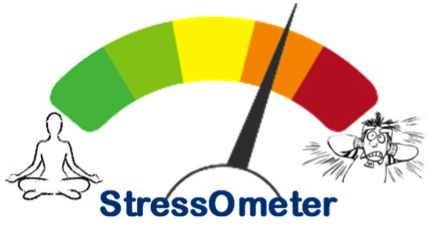How to avoid stress and missing deadlines
Most of us have experienced this already. Being given deadlines, getting stressed the more the deadline approaches. And getting even more stressed when we miss the deadline. For some, deadlines are simply a suggested date of completion. This applies mostly to students. But for those who are actually working, deadlines are a nightmare that leads to stress. Here are tips to prevent stress while hitting your deadlines.
1. Get all the details
The moment you get the project/assignment, you need to be able to plan how you want to work on it. In order to come up with a plan, you need information. Try to get as much info as possible, don’t be afraid to ask questions. Knowing what you’re up against is better than jumping into the unknown and expecting something awesome to happen. That’s not how it works! Gather the info you need and work with that. If it’s not enough, ask questions.

2. Learn to say no
In most cases, managers don’t know how the process works. For example, a project manager would ask you to build something you know would take at least a month, and ask you to do it in a week. Note that this manager is not in the same field of expertise as you and is simply there to manage the project, not you. So basically, he doesn’t know how things work and some of the thing he’ll ask you to do is not going to make sense to you. Learn to explain to them and learn to say no. Ask for more time if necessary. If they insist on that ridiculous time frame, ask that someone assist you on the task. If you don’t, this will lead to a lot of stress on your part. It’s not illegal to say no to something once in a while.

3. Plan
Once you’ve got all the info you need, plan how you want to work on it. If it’s a big project, chop it down into chunks to ensure you’re not overworked and so you can see the big picture. Know how long it would take you to work on it, and account for expected/unexpected events that might happen during the time between getting the project and the deadline of the project. If the project would take you more than a week to finish, make sure to leave at least 3 days buffer days. This is in case something blows up in your face, you’ve got time to fix it.

4. Avoid rushing, and working too late
The both are essentially a tandem. If you start work on it a few days before the deadline, you’ll start rushing things. These 2 are bad news. If you rush things, you’ll tend to make a lot of mistakes and result in redoing a lot of your work and wasting more time. Work on it early. If possible, start work on it a day after or on the exact day you received the project.

5. Commit to your plan
There are a lot of temptations out there. Friends going out, street parties, someone’s debut, etc. Aside from telling you superiors no, learn to say no to temptation. If you give in to this every time, you’ll find yourself rushing and screwing things up. We don’t want that now, do we? However, events should be part of your plan. As I said in Plan, allot some time for expected/unexpected events. You can go out with friends, but make sure that falls within your plan. This also serves as a stress reliever.

6. Review your work
Once you’re done, review your work days before the you submit it. You can even ask help from someone to help review your work and see mistakes. If this is your co-worker, it’s called a peer review. This is commonly done in software companies and on news, magazines, or web articles. As indicated in Plan, you should allot at least 3 days buffer time. The buffer time can be used to revise mistakes you’ve seen during this phase.

7. Backup your work
This is a major issue for a lot of people. On the day you present your work, something horrible happens and you end up losing a months work. If you backed up your work, good for you. If not, it’s back to step 1, buddy!


